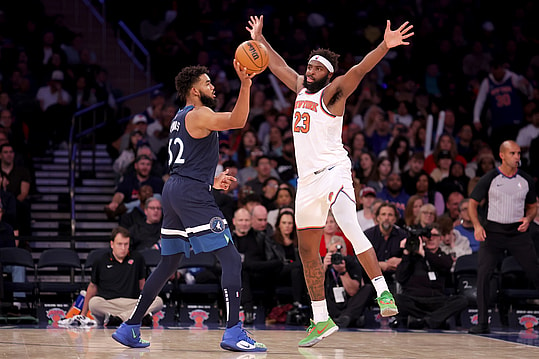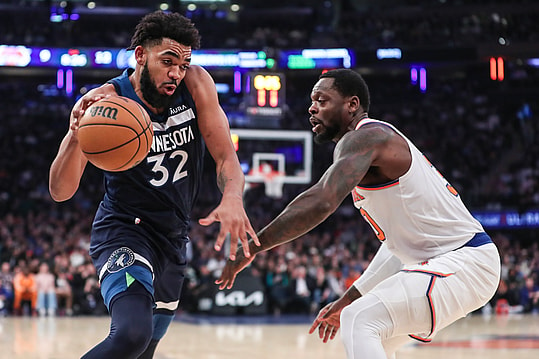
The New York Knicks made the blockbuster Karl-Anthony Towns deal with the Minnesota Timberwolves official Wednesday, which also included the Charlotte Hornets as a third team in the trade to help facilitate the moving parts.
A loophole in the CBA allowed the Knicks to complete the Karl-Anthony Towns trade

The Knicks and Timberwolves are both over the first apron, so the Hornets being included was necessary to avoid overlapping the second apron. Fred Katz of The Athletic reported that New York discovered a loophole in the league’s Collective Bargaining Agreement that allowed them to complete the trade.
“Teams in their situation cannot aggregate minimums anymore. So in the sign and trades of [Daquan] Jeffries, [Charlie] Brown and [Duane] Washington, they are paying each of those guys just $1 above the minimum, league sources tell The Athletic,” Katz posted to X.
Katz added in a separate X post that the league isn’t thrilled about this loophole that the Knicks discovered, but that it was simply a case of a front office outsmarting the CBA. Regardless, the move to sign those players to contracts that are technically not considered minimums was a tremendous and creative job by the front office to prevent them from being hard-capped financially.
- The Knicks are not on the same level as the Pistons right now
- Knicks: What to expect from Jose Alvarado and Jeremy Sochan for the rest of the season
- Knicks’ Mike Brown to cut Mohamed Diawara’s minutes temporarily
The Knicks were entering a tough financial situation following the trade

Towns is under a massive contract worth over $220 million across four years. By the 2027-28 season, he will have a cap hit of over $61 million, so the Knicks inserted themselves into a complicated financial situation with the trade.
In fact, part of why the Knicks were willing to include Julius Randle in the trade was because of his future contract situation. He is extension-eligible currently and can test free agency as soon as next offseason if he declines his player option worth over $30 million.
However, using this loophole allowed New York to complete the trade without major implications on their ability to further add pieces to the team. The Knicks are now set up not only for this season but for at least a few more seasons ahead, all thanks to some critical thinking by the front office.
More about:New York Knicks